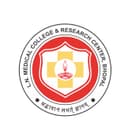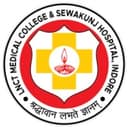Bachelor of Science (BSc) in Medical Radio Imaging Technology
OR
Prepared by Docthub Courses Team ∣
Last updated on 02 Aug 2024
Overview
The Bachelor of Science (BSc) in Medical Radio Imaging Technology is a specialized undergraduate degree that focuses on the application of imaging technologies in the medical field.
This course trains students to use various radiographic techniques, including X-rays, Magnetic resonance imaging (MRI), computed tomography (CT), ultrasound, and other advanced imaging technologies, to assist in medical diagnosis and treatment.

Table of Content
What is Bachelor of Science (BSc) in Medical Radio Imaging Technology?
A Bachelor of Science (BSc) in Medical Radio Imaging Technology is an undergraduate degree program that focuses on the study and application of radiological imaging techniques used in the medical field.
Students learn the fundamentals of different radiological imaging modalities such as X-ray, computed tomography (CT), magnetic resonance imaging (MRI), and ultrasound.
Graduates of a BSc in Medical Radio Imaging Technology program can find employment in hospitals, diagnostic imaging centers, research laboratories, and other healthcare facilities as radiological technologists, medical imaging specialists, or medical imaging technicians.
Highlights
| Particulars | Bachelor of Science (BSc) in Medical Radio Imaging Technology |
| Course Type | Undergraduate Degree |
| Duration | 3 Years |
| Eligibility | 10+2 or equivalent examination from a recognized board with a minimum percentage requirement of 50% |
| Admission Process | Entrance Exams/Merit-based Selection/Both |
| Fees | INR 50,000 – 2,00,000 |
| Colleges in India | Manipal Academy of Higher Education Christian Medical College Kasturba Medical College Sanjay Gandhi Postgraduate Institute of Medical Sciences King Edward Medical University |
| Job Roles | Radiology Technician Radiologic Technologist Medical Imaging Specialist Research Assistant Healthcare Educator |
| Salary | INR 3-7 LPA |
Eligibility
Eligibility requirements for the BSc in Medical Radio Imaging Technology vary depending on the institution and country, but typically include the following:
- Candidates must have completed 10+2 (high school) with a focus on science subjects, such as Physics, Chemistry, and Biology/Mathematics. Some institutions may also require a minimum percentage or grade point average (GPA).
- Some universities require candidates to pass specific entrance exams related to medical or engineering fields.
Duration
The Bachelor of Science (BSc) in Medical Radio Imaging Technology duration in India is typically four years, including a one-year internship.
Fees
The Bachelor of Science (BSc) in Medical Radio Imaging Technology fees can vary depending on the college or university. However, it can generally range from ₹50,000 to ₹2,00,000 per year.
Who Should Do This Course?
The BSc in Medical Radio Imaging Technology is ideal for:
- Individuals interested in working with advanced medical imaging equipment to assist radiologists and physicians.
- This field requires precision and attention to detail when capturing and analyzing medical images.
- Those with a strong foundation in physics and biology, along with a passion for medical sciences.
- Individuals who enjoy solving technical and diagnostic challenges.
Why Study This Course?
Studying this course offers several benefits:
- Gain in-depth understanding of various imaging technologies and their medical applications.
- The medical imaging field is growing rapidly, leading to an increasing demand for skilled professionals.
- Graduates can work in hospitals, diagnostic centers, clinics, research labs, and even academia.
- Radiology imaging technicians play a crucial role in diagnosing and monitoring medical conditions, contributing directly to patient care and outcomes.
Admission Process
The Bachelor of Science (BSc) in Medical Radio Imaging Technology Admission Process in India can vary between institutions, but it generally follows a set of common steps:
- Meeting the Eligibility Criteria: Students must have completed 10+2 (senior secondary education) in the science stream with a minimum percentage of marks (which varies depending on the institution). Some institutions may require entrance exams.
- Application Process: Applicants will need to submit an application form along with required documents such as mark sheets, transcripts, and letters of recommendation.
- Entrance Exam: Some institutions may require candidates to take an entrance exam to test their knowledge of science and aptitude for the program.
- Interview: Shortlisted candidates may be called for an interview to assess their communication skills, motivation, and suitability for the program.
- Selection: Based on the application, entrance exam results (if applicable), and interview performance, students will be selected for the program.
- Document Verification and Fee Submission: Submit the required documents and pay the admission fees to confirm your seat, which may include:
- High school transcripts and certificates.
- Proof of identity.
- Passport-sized photographs.
- Completed application form.
- Any other documents specified by the institution.
Entrance Exam
Admission to a BSc in Medical Radio Imaging Technology program in India is usually based on entrance exams conducted by the respective colleges or universities. Some common entrance exams include:
- National Institute of Technology Entrance Exam (NITEEE)
- All India Institute of Medical Sciences Entrance Exam (AIIMS)
- Jawaharlal Nehru Institute of Post Graduate Medical Education and Research (JIPMER) Entrance Exam
- State-level medical entrance exams
Syllabus
B.Sc Medical Imaging Technology Syllabus covers various subjects such as:
| Year/Semester | Courses |
Year 1 Introduction to Medical Imaging Physics of X-Radiation Anatomy and Physiology Patient Care and Communication Medical Ethics and Law Computer Fundamentals Year 2 Radiographic Equipment and Operation Radiographic Positioning and Procedures Radiation Biology and Protection Fluoroscopy Sectional Anatomy Introduction to Pathology Year 3 Advanced Radiographic Techniques Ultrasonography Computed Tomography (CT) Magnetic Resonance Imaging (MRI) Nuclear Medicine Imaging Quality Control and Image Processing Year 4 Internship in a clinical setting Radiographic Research Project Seminar and Presentation |
Top Colleges
Top Bachelor of science in medical radio imaging technology colleges in India are:
- Amrita Vishwa Vidyapeetham, Coimbatore
- Manipal Academy of Higher Education, Manipal
- Christian Medical College, Vellore
- Kasturba Medical College, Manipal
- Sanjay Gandhi Postgraduate Institute of Medical Sciences, Lucknow
- King Edward Medical University, Lahore
- Maulana Azad Medical College, New Delhi
- Sri Ramachandra Institute of Higher Education and Research, Chennai
- Seth GS Medical College and KEM Hospital, Parel, Mumbai
- Madras Medical College, Chennai
Scope
The Bachelor of Science in medical radio imaging technology jobs include working in various work settings:
- Develop skills in operating and maintaining various imaging equipment, along with knowledge of safety protocols and patient care.
- Graduates can work in research settings, contributing to the development of new imaging techniques and technologies.
- The skills gained in this course are foundational for exploring new imaging methodologies and contributing to the advancement of medical technology.
Further Study Options
After completing this course, students can pursue further studies:
- Pursue a Master's in Radiology, Medical Imaging, or related fields to deepen your expertise.
- Specialize in specific imaging techniques like MRI or CT for advanced career opportunities.
- Obtain certifications from professional bodies like the American Registry of Radiologic Technologists (ARRT) or equivalent to enhance employability.
Career Opportunities After This Course
A Bachelor of Science in medical radio imaging technology careers include working as:
- Radiology Technician
- Radiologic Technologist
- Medical Imaging Specialist
- Research Assistant
- Healthcare Educator
Salary
The Bachelor of science in medical radio imaging technology salary in india is around ₹30,000 to ₹40,000 per month. However, with experience and specialization, the salary can increase significantly.
Explore colleges for this course
Quick Go Links

Explore this course by location..
Related Job Roles
Related Job Vacancies
View All 87 Jobs

FAQS
What is a Bachelor of medical radio imaging technology?
A Bachelor of Medical Radio Imaging Technology is an undergraduate degree program that focuses on the use of medical imaging technologies such as X-rays, CT scans, MRI, and ultrasound.
Is BSc medical Radio imaging technology a good course?
BSc Medical Radio imaging technology is generally considered a good course as it provides training for an in-demand healthcare profession.
How to get admission to BSc in Medical Radio Imaging Technology?
Admission is typically based on academic qualifications and entrance exams.
How much does Bachelor of Science in Medical Radio Imaging Technology cost?
Tuition fees vary by institution but are usually in the range of $5,000-$15,000 per year.
Who is eligible for BSc in medical radio imaging technology?
Eligibility typically requires a high school diploma or equivalent, with coursework in science and mathematics.
Related Course titles

Qualifications
12th Science PCB
Related Specialty
Emergency Radiology
Pediatric Radiology







